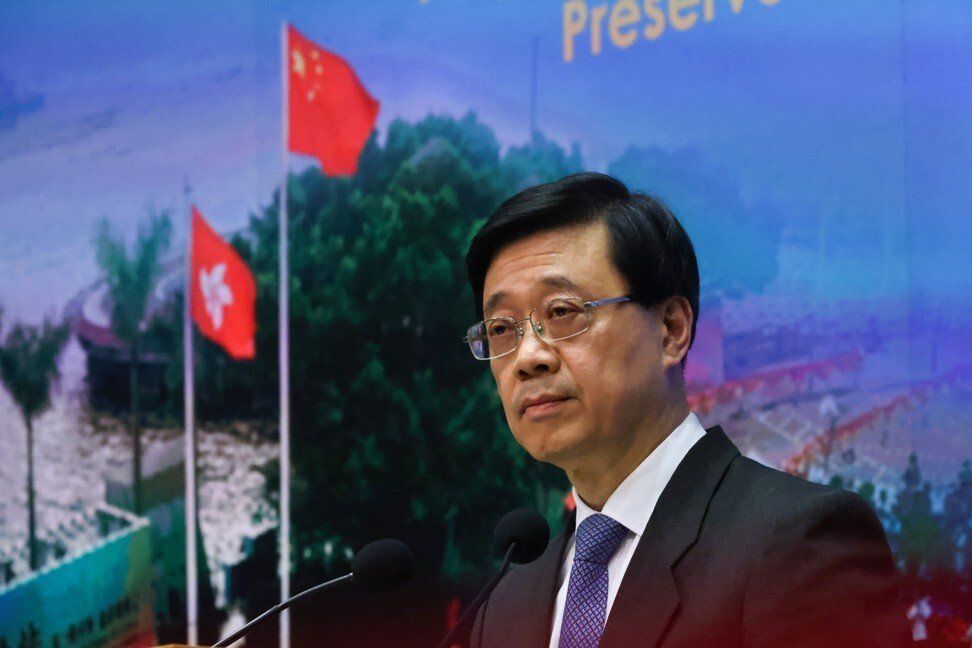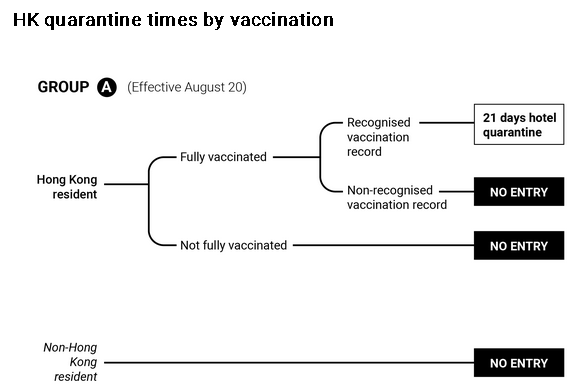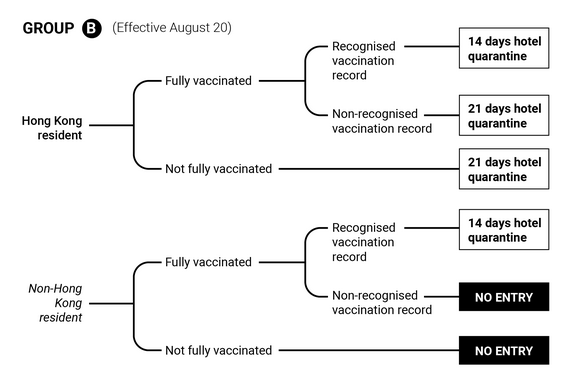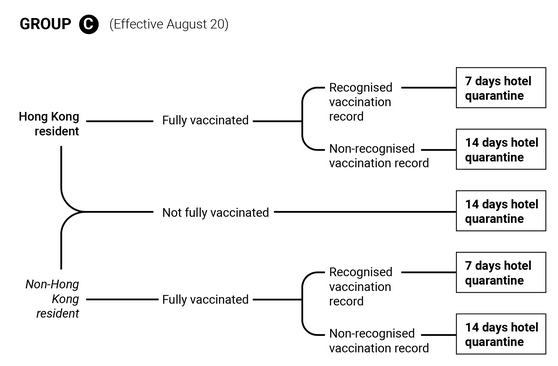Hong Kong’s No 2 official says talks with mainland officials on reviving cross-border travel can resume if improvements made in three areas of Covid-19 policy.
Hong Kong must strengthen coronavirus controls in areas such as testing and quarantine before the border with mainland China can reopen, the city’s deputy leader has said after meeting Beijing officials.
Chief Secretary John Lee Ka-chiu said on Monday that both sides were positive about the prospect of reviving cross-border travel during “constructive” talks in Shenzhen over the weekend.
He identified three areas of improvement in Hong Kong’s anti-pandemic strategy to pave the way for further discussions, covering screening requirements for inbound travellers, the quarantine system and the city’s overall approach to risk.
But Lee said the mainland officials had not set any preconditions for relaxing travel restrictions, which Hong Kong authorities have made a priority for boosting the economy.
More than 20 representatives from the mainland and Hong Kong attended Sunday’s meeting, hosted by Huang Liuquan, a deputy director of the State Council’s Hong Kong and Macau Affairs Office.
“The mainland experts understand that Hong Kong has its own [anti-pandemic] measures, and they acknowledge that Hong Kong has yielded a certain result,” Lee told the press.
“Our focus is to build a strong foundation to increase the mainland’s confidence in Hong Kong, and understand that Hong Kong will not bring extra health and safety risks to other places.”
Lee did not directly answer questions on whether a date for a border reopening had been set, or if that could be achieved by the end of the year.
“The process takes time, but I believe that the border could reopen in a gradual manner, as both sides demonstrated a positive attitude,” he said. “We will be proactive and push it forward as fast as we can.”
He added local officials would submit a report on the meeting to Chief Executive Carrie Lam Cheng Yuet-ngor and strive to hold a second meeting with the mainland “as soon as possible”.
 Chief Secretary John Lee.
Chief Secretary John Lee.
Those in attendance included representatives from the central government’s liaison office in Hong Kong, and the Guangdong and Shenzhen administrations, as well as Secretary for Food and Health Professor Sophia Chan Siu-chee and Secretary for Innovation and Technology Alfred Sit Wing-hang.
After the meeting, a source told the Post that “some things are missing” from the Hong Kong approach, adding that lessons would be learned from Macau’s experiences.
Macau had over the past year largely brought the coronavirus under control, but recently recorded a spike in local cases, as have parts of the mainland.
Hong Kong last confirmed a local Covid-19 case with an unknown source of infection on August 17, involving a 47-year-old airport worker. Health officials believe she probably contracted the virus at the transport hub rather than in the community.
The city’s border controls are some of the world’s toughest, with inbound travellers required to quarantine for up to 21 days at designated hotels and undergo mandatory testing both during and after isolation.



Hongkongers on the mainland and in Macau can return to the city without serving quarantine under the “Return2HK scheme” if they test negative for Covid-19.
A “Come2HK scheme” allows non-Hong Kong residents in Guangdong province and Macau – including mainlanders and expatriates – to travel to the city without quarantining.
But the arrangements are not reciprocal at this stage.
Macau resumed quarantine-free travel with the neighbouring mainland city of Zhuhai in May last year, following the mutual recognition of a risk-based health code system that takes into account an individual’s condition, contact with Covid-19 patients and travel history.
Travellers must also provide a negative coronavirus test taken no more than seven days before departure.
Respiratory medicine expert Dr Leung Chi-chiu noted a recent uptick of imported infections in Hong Kong and urged the government to further tighten restrictions on travellers. He added a new strategy should be developed on eliminating cases within a month of an outbreak.
“Hong Kong has no concrete plan on how to quickly cut off the spread of Covid-19 if there’s a community case. The strategy of simply tightening social-distancing measures and quarantining close contacts is outdated in the wake of more infectious variants,” he said.
Leung acknowledged that locking down entire districts for mandatory testing would be difficult in Hong Kong but suggested ramping up regular screening instead – particularly for staff in high-risk places such as the airport and quarantine hotels – to two times per week.
That should also apply to those who were fully vaccinated, to snuff out the contagion risks posed by asymptomatic carriers, he added.
Meanwhile, Hong Kong police on Monday arrested a 75-year-old man on suspicion of escaping from compulsory quarantine in a Tsim Sha Tsui hotel.
The recent arrival from Italy was held in Central on Monday evening after spending about a day on the run from the Ramada Hong Kong Grand.















